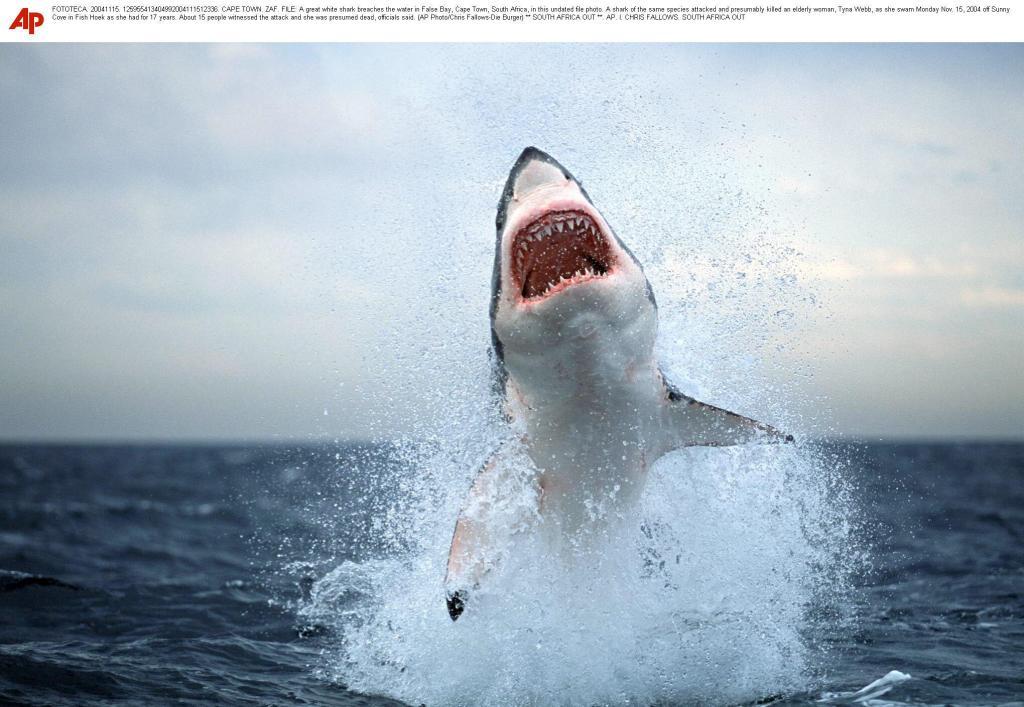The role of the shark as a killing machine, aquatic knife, ocean's executioner, nature's hitman, and insatiable killer may be numbered, all due to a dental problem.
Sharks are famous for their ability to replace their teeth. When they wear out, new ones immediately grow in; as they depend on their teeth to catch prey, evolution has equipped them with a replaceable tool vital for their survival.
However, their regenerative capacity seems unable to withstand global warming, as the oceans are becoming more acidic. German researchers examined shark teeth under different ocean acidification scenarios and have demonstrated in a study that this acidity is making their teeth more fragile and weaker.
Sharks avoid bathers: attacks reduced to historic lows in 2024
Moctezuma and his pod of orcas specialize in hunting whale sharks in Mexico
"Despite being composed of highly mineralized phosphates, they remain vulnerable to corrosion in future ocean acidification scenarios," says Maximilian Baum, a biologist at Heinrich Heine University in Düsseldorf (HHU) and the lead author of the article just published in Frontiers in Marine Science. "They are highly developed weapons designed to cut flesh, but our results demonstrate how vulnerable even nature's sharpest weapons can be."
Ocean acidification is a process in which the ocean's pH continuously decreases, resulting in more acidic waters. This is mainly due to human-generated CO2 emissions. Currently, the world's oceans' average pH is 8.1, but it is projected to decrease to 7.3 by 2300, making it nearly ten times more acidic than it is today.
For their study, researchers used these two pH values and examined the effects on teeth of blacktip reef sharks. They collected over 600 teeth from an aquarium housing sharks.
Compared to teeth incubated at a pH of 8.1, those exposed to more acidic water suffered significantly more damage. "We observed visible damage such as cracks and holes, increased root corrosion, and structural degradation," stated Professor Sebastian Fraune, who heads the Institute of Zoology and Organic Interactions at HHU. The circumference of the tooth was also larger at higher pH levels. However, the teeth did not grow but their surface structure became more irregular, making them appear larger in 2D images. Although an altered dental surface can enhance cutting efficiency, it can also weaken the teeth's structure and make them more prone to breakage.
The study only analyzed discarded teeth of non-living mineralized tissue, meaning the repair processes that could occur in living organisms were not considered. "In live sharks, the situation could be more complex. They could remineralize or replace damaged teeth more rapidly, but the energy cost of this would likely be higher in acidified waters," explained Fraune.
Blacktip reef sharks must swim with their mouths open permanently to breathe, exposing their teeth constantly. If the water is too acidic, the teeth are automatically damaged, especially if acidification intensifies, according to researchers. "Even moderate pH decreases could affect more sensitive species with slower dental replication cycles or have cumulative effects over time," Baum pointed out. "Maintaining the ocean's pH near the current average of 8.1 could be crucial for the physical integrity of these predator tools."
The study shows that microscopic damage could be enough to pose a serious problem for animals that rely on their teeth to survive. "It is a reminder that the impacts of climate change cascade throughout the food web and ecosystems," Baum concluded.
